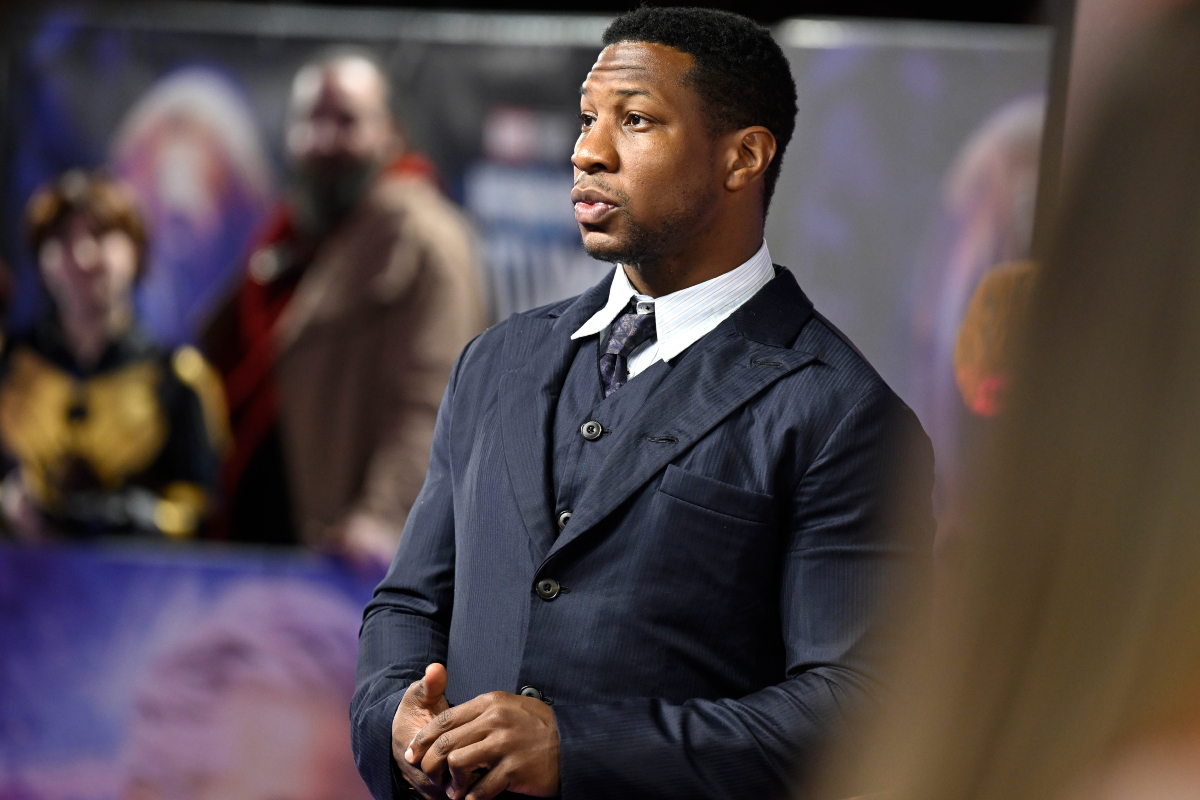Why Did Marvel Wait Until Now To Fire Jonathan Majors?

Following days of deliberation, a jury has found Jonathan Majors guilty of the assault and harassment of his former girlfriend, Grace Jabbari. Within hours, Marvel Studios finally decided to fire the actor from its franchise. It’s a small measure of justice for Jabbari, but a nagging question remains: What took Marvel so long?
Marvel has officially fired Jonathan Majors, the actor who played Kang, the centerpiece villain in the studio’s new phase of increasingly tedious superhero blockbusters. The news is probably a relief to some; Marvel has avoided answering questions about Majors, who has been found guilty of reckless assault in the third degree and of harassment, and it wasn’t clear when or if the studio would do anything. (Disney previously shelved Magazine Dreams, the hit Sundance drama starring Majors as a bodybuilder, which the studio was set to release this month through Searchlight Pictures.)
The decision to fire Majors, only after a trial and after a guilty verdict had been reached, is frustrating. While it seems reasonable to wait for the trial to conclude, it’s not as if we live in a country known for its sterling criminal justice system, or for doing right by victims of abuse—especially when those victims are women, such as Grace Jabbari, Majors’ former girlfriend. At what point during this investigation and its subsequent trial—during which threatening text messages were revealed, disturbing testimonies given, and photos of Jabbari’s injuries made public—did it become clear enough that Majors was guilty? I’d like to be able to give Marvel and the justice system the benefit of the doubt; I’d like to be able to say that executives did the right thing by waiting for a jury of Majors’ peers to render a verdict, and for firing him so swiftly thereafter. But then I wonder: What if, all evidence being the same, the jury found Majors not guilty? Perhaps this is a bad faith hypothetical, but there are plenty of “canceled” famous men who remain successful in their industries, several of whom have been found not guilty in court, if they were ever prosecuted at all. (See also: Kevin Spacey, Johnny Depp, Louis CK, Chris Brown, James Franco, et al.)
In the years since dozens of women came forward to name Harvey Weinstein as their rapist, the rise of the MeToo movement inspired optimism for a massive reckoning. Instead, the invisible asterisk next to “believe women” has become more apparent. Believe women, except for the ones who defend themselves. Believe women, except for the ones who stay in abusive relationships. Believe women, except for the ones who struggle with substance abuse or addiction. Believe women, except for the ones we don’t like. This is certainly true of high-profile cases involving celebrities, and it’s unfortunately even more true for women whose names you’ll never know.
According to Marvel, it’s okay to believe women as long as a jury does. It’s difficult to perform surprise for the same studio that can hardly be bothered to acknowledge the existence of (whispers) gays without making a huge event out of allowing one (1) to appear in a movie for a few minutes; the same studio that took 11 years and 20 movies to give a female superhero her own movie, which also happened to be the first time it trusted a woman to direct one; the same studio that, just this summer, has bent over backwards to blame the underperformance of a sequel to that movie—starring three whole women!—on the Black woman who directed it.
In the months since Majors was initially arrested on March 25, as more unsettling details have been made public and more women reportedly came forward to cooperate with the investigation, it seemed pretty clear that Majors is a troubled man. For those who have experienced abuse, each new detail and report felt uncomfortably familiar. We watched as the case took on recognizable shapes and followed predictable patterns—including turning the allegations around on Jabbari and questioning why she went to a club after Majors assaulted her, instead of going home and crying alone like a good victim should. It was almost surprising that a jury found Majors guilty at all.
And while all of this was unfolding in the public eye, something else was going on at Marvel—something serious enough to warrant reevaluating its strategy: audiences are getting bored of superhero media. It just so happens that Majors was a key component of Marvel’s film and television plans, having appeared in Loki seasons 1 and 2 and Ant-Man and the Wasp: Quantumania. Even though Majors was playing a supervillain with different identities across multiple universes and timelines and could theoretically be recast with little-to-no explanation needed, Marvel decided to wait. It wasn’t until The Marvels under-performed at the box office and the media began questioning Marvel’s formula and its whole “fix it in post” approach that the studio budged. Directors and writers began exiting projects. Talk began of shifting the TV projects away from the movie franchise.
The way this has played out, it seems as if Marvel used Majors’ guilty verdict as an excuse to fire him at a time when the entire franchise strategy is being evaluated and the studio’s multi-year film and TV plans are undergoing massive changes. Marvel could’ve easily fired Majors at any time, for any reason. This is the same studio that fired James Gunn for old, offensive tweets; the same studio that has no qualms with blaming Nia DaCosta for the underperformance of The Marvels; the same studio that fired Victoria Alonso, an openly gay executive, after she reportedly refused to have LGBTQ+ pride symbolism removed from the third Ant-Man film for foreign distribution (Marvel claims Alonso breached her contract by producing and promoting an Amazon film).
That Marvel Studios waited until Majors was declared guilty is, for lack of a better word, bullshit.
(featured image: Gareth Cattermole, Getty Images)
Have a tip we should know? tips@themarysue.com